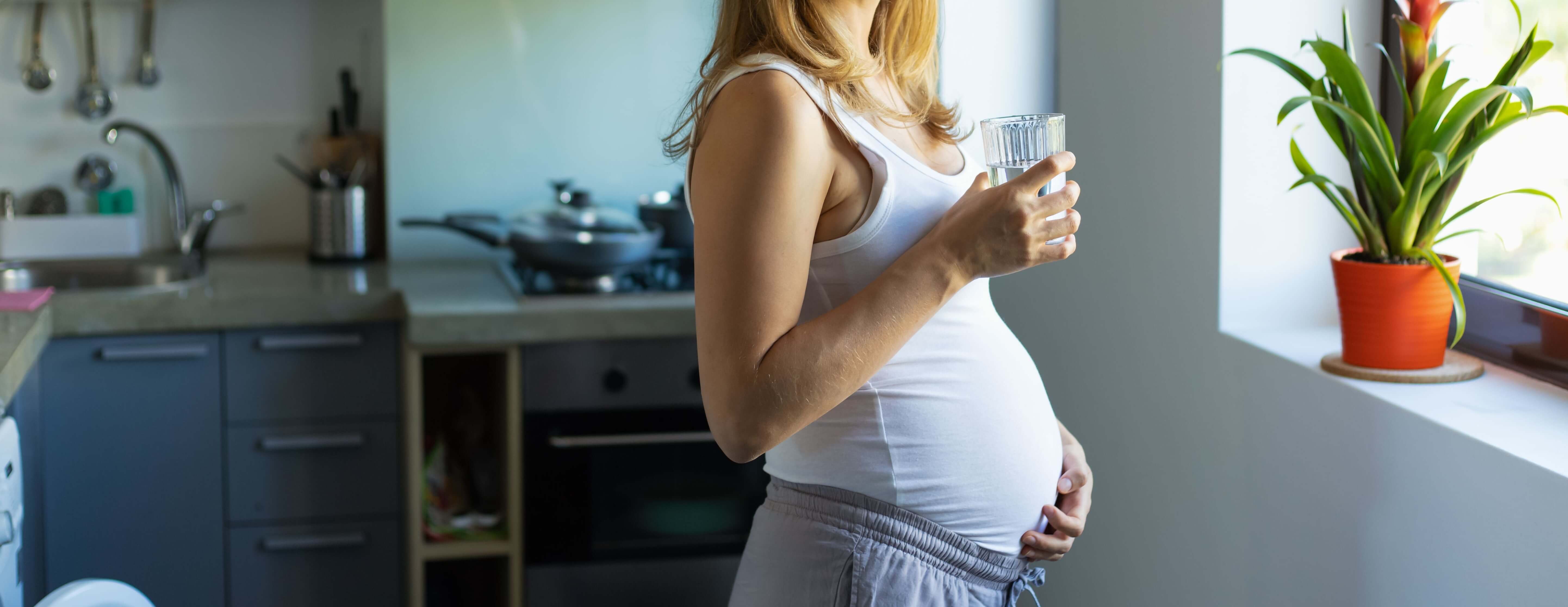Hydration during pregnancy


If in the day-to-day of any person it is already vital to hydrate well, it is even more so during pregnancy. Women in this phase need to drink more water than normal. We explain the reasons and advise you.
¿Why is it important to stay well hydrated during pregnancy?
During the nine months of pregnancy, your body will require more fluid than usual. This has its explanation. Before going into the particularities of pregnancy, it is important to know that 70% of our brain is made up of water, 80% of our blood is water and 90% of our lungs are made up of water. This liquid is what facilitates the absorption of the nutrients we eat, transporting them through the blood to the cells. It is also vital to eliminate what we do not need from the body through urine, excrement and breathing, in the form of water vapour.
During pregnancy, around a litre more blood circulates through the body to be able to nourish the fetus, which is made of 95% water. Likewise, in the formation of the baby's tissues, waste is generated that must be evacuated through urine or breathing. Another reason why hydration is key during the months of pregnancy is heat resistance. It is said that body temperature rises up to half a degree during pregnancy, precisely because of the increase in blood volume. And to cope with high temperatures you will need an extra dose of water.
In short, staying well hydrated during pregnancy is the best way to keep your body and the baby's health. Doing it properly will improve your circulation and you will tolerate moments of suffocating heat easier. In addition, drinking water can help relieve nausea and heartburn, which are very common during the first trimester. If you have constipation problems, water is also one of the best remedies because it facilitates the work of the kidneys.
What happens if I don't drink enough water during pregnancy?
If you do not manage to reach the optimal level of hydration during pregnancy, there is a risk that you will suffer from hypotension. This happens when the body does not have enough water to maintain normal blood pressure. Constant tiredness is one of the symptoms of low blood pressure.
Another risk associated with a lack of water in your diet is arthritis. Joints can cause pain if the cartilage in your bones does not have enough water to prevent deterioration.
Too little water over the course of your day could also cause heartburn and constipation.
What to drink during pregnancy?
The basic liquid you need in your diet during the nine months is water, without a doubt. It is a necessary calorie-free drink every day of your life. Combining it with liquids with mineral salts, natural juices or sugar-free infusions is a more than healthy option. However, you have to be careful with soft drinks high in sugar. It is also not recommended to include alcohol in your diet. Neither wine nor beer is accepted by most doctors.
How much should I drink during pregnancy?
Your doctor should be your most reliable source of advice on issues like this. That said, it is recommended to drink around 2 to 2.5 litres of fluids per day during pregnancy. A quarter of it can come from water-rich foods. There are fruits such as watermelon, orange or melon that can help you reach the indicated consumption.
If you do any sport recommended for pregnant women, you should always have a bottle of water nearby and make sure to drink before, during and after exercising. And on hot days, the 2 litres may also fall short and you need to hydrate more than is generally recommended.
When to drink water in pregnancy?
You don't have to wait until you feel thirsty to drink water. Doing it constantly in small amounts throughout the day is the most recommended to avoid signs of dehydration. If you spend a few hours away from home, make sure you have water nearby to drink.
How do I know if I am drinking too much water?
It is also not advisable to drink more than what your body asks for. The best way to tell if you can slow down is by looking at the colour of your urine. If it is completely transparent, it means that you are drinking too much water. On the other hand, if the colour is light yellow, your hydration levels are adequate.

